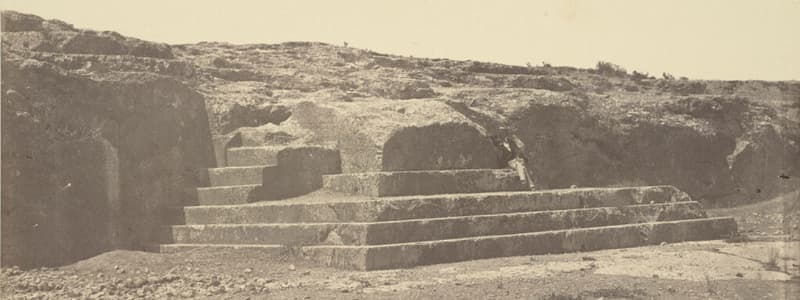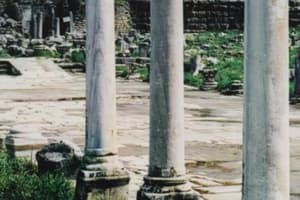Podcast
Questions and Answers
What was the penalty for unpremeditated murder according to Dracon's law?
What was the penalty for unpremeditated murder according to Dracon's law?
- Forced labor
- Death sentence
- Life imprisonment
- Exile (correct)
What was the purpose of Dracon's distinction between murder and manslaughter?
What was the purpose of Dracon's distinction between murder and manslaughter?
- To introduce private punishment
- To punish the rich more harshly
- To protect the interests of the phratry
- To end blood-vengeance and private punishment (correct)
Who gave Athens its firs comprehensive written laws?
Who gave Athens its firs comprehensive written laws?
- Cleisthenes
- Draco (correct)
- Cylon
- Solon
What was the result of the civic struggle between the nobles and the people?
What was the result of the civic struggle between the nobles and the people?
What part of Dracon's code survived Solon's legislation?
What part of Dracon's code survived Solon's legislation?
Flashcards are hidden until you start studying
Study Notes
Social Crisis in Athens
- Athenian nobility faced an economic and social crisis that undermined their power and affected the whole community.
- In 632 or 636, Cylon, a nobleman and former Olympic victor, attempted to seize power but was thwarted by armed peasants who saved the situation for the authorities.
Cylon's Attempt and its Aftermath
- Cylon's attempt showed general disturbance and unrest, but also a united front against tyranny.
- The people in arms had become a serious danger to the ruling class.
- Shortly after, Dracon introduced the first written codification of laws, granting the people some safety against arbitrary jurisdiction.
Dracon's Legislation
- Dracon's code distinguished between murder and manslaughter, with the penalty for unpremeditated murder being exile.
- This law marked the beginning of the end of blood-vengeance and private punishment in Athens.
Social and Economic Conditions
- The poor, including women and children, were in servitude to the rich, and all the land was in the hands of a few.
- The rich could buy out farmers, leading to the accumulation of land and wealth.
- Small farms were being divided, making it likely that many peasants fell into debt.
Solution Needed
- A wise and courageous leader was needed to address the social and economic crisis.
- Solon, in one of his poems, renders an account of his actions, including freeing the land from the horoi (boundary stones or markers).
Studying That Suits You
Use AI to generate personalized quizzes and flashcards to suit your learning preferences.




